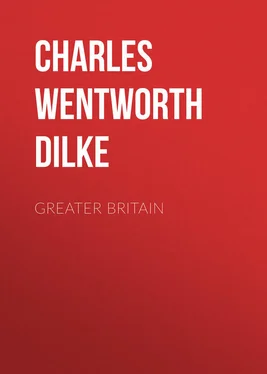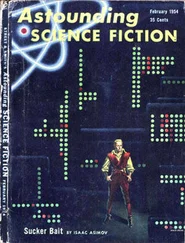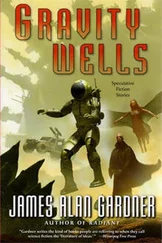Charles Dilke - Greater Britain
Здесь есть возможность читать онлайн «Charles Dilke - Greater Britain» — ознакомительный отрывок электронной книги совершенно бесплатно, а после прочтения отрывка купить полную версию. В некоторых случаях можно слушать аудио, скачать через торрент в формате fb2 и присутствует краткое содержание. Жанр: foreign_antique, foreign_prose, Путешествия и география, на английском языке. Описание произведения, (предисловие) а так же отзывы посетителей доступны на портале библиотеки ЛибКат.
- Название:Greater Britain
- Автор:
- Жанр:
- Год:неизвестен
- ISBN:нет данных
- Рейтинг книги:5 / 5. Голосов: 1
-
Избранное:Добавить в избранное
- Отзывы:
-
Ваша оценка:
- 100
- 1
- 2
- 3
- 4
- 5
Greater Britain: краткое содержание, описание и аннотация
Предлагаем к чтению аннотацию, описание, краткое содержание или предисловие (зависит от того, что написал сам автор книги «Greater Britain»). Если вы не нашли необходимую информацию о книге — напишите в комментариях, мы постараемся отыскать её.
Greater Britain — читать онлайн ознакомительный отрывок
Ниже представлен текст книги, разбитый по страницам. Система сохранения места последней прочитанной страницы, позволяет с удобством читать онлайн бесплатно книгу «Greater Britain», без необходимости каждый раз заново искать на чём Вы остановились. Поставьте закладку, и сможете в любой момент перейти на страницу, на которой закончили чтение.
Интервал:
Закладка:
Here, on the water‘s edge, is a rickety hall, where Jenny Lind sang when first she landed – now the spot where strangers of another kind are welcomed to America. Every true republican has in his heart the notion that his country is pointed out by God for a refuge for the distressed of all the nations. He has sprung himself from men who came to seek a sanctuary – from the Quakers, or the Catholics, or the pilgrims of the Mayflower . Even though they come to take the bread from his mouth, or to destroy his peace, it is his duty, he believes, to aid the immigrants. Within the last twenty years there have landed at New York alone four million strangers. Of these two-thirds were Irish.
While the Celtic men are pouring into New York and Boston, the New Englanders and New Yorkers, too, are moving. They are not dying. Facts are opposed to this portentous theory. They are going West. The unrest of the Celt is mainly caused by discontent with his country‘s present, that of the Saxon by hope for his private future. The Irishman flies to New York because it lies away from Ireland; the Englishman takes it upon his road to California.
Where one race is dominant, immigrants of another blood soon lose their nationality. In New York and Boston the Irish continue to be Celts, for these are Irish cities. In Pittsburg, in Chicago, still more in the country districts, a few years make the veriest Paddy English. On the other hand, the Saxons are disappearing from the Atlantic cities, as the Spaniards have gone from Mexico. The Irish here are beating down the English, as the English have crushed out the Dutch. The Hollander‘s descendants in New York are English now; it bids fair that the Saxons should be Irish.
As it is, though the Celtic immigration has lasted only twenty years, the results are already clear: if you see a Saxon face upon the Broadway, you may be sure it belongs to a traveler, or to some raw English lad bound West, just landed from a Plymouth ship. We need not lay much stress upon the fact that all New Yorkers have black hair and beard: men may be swarthy and yet English. The ancestors of the Londoners of to-day, we are told, were yellow-headed roysterers; yet not one man in fifty that you meet in Fleet Street or on Tower Hill is as fair as the average Saxon peasant. Doubtless, our English eastern counties were peopled in the main by low-Dutch and Flemings: the Sussex eyes and hair are rarely seen in Suffolk. The Puritans of New England are sprung from those of the “associated counties,” but the victors of Marston Moor may have been cousins to those no less sturdy Protestants, the Hollanders who defended Leyden. It may be that they were our ancestors, those Dutchmen that we English crowded out of New Amsterdam – the very place where we are sharing the fate we dealt. The fiery temper of the new people of the American coast towns, their impatience of free government, are better proofs of Celtic blood than are the color of their eyes and beard.
Year by year the towns grow more and more intensely Irish. Already of every four births in Boston, one only is American. There are 120,000 foreign to 70,000 native voters in New York and Brooklyn. Montreal and Richmond are fast becoming Celtic; Philadelphia – shades of Penn! – can only be saved by the aid of its Bavarians. Saxon Protestantism is departing with the Saxons: the revenues of the Empire State are spent upon Catholic asylums; plots of city land are sold at nominal rates for the sites of Catholic cathedrals, by the “city step -fathers,” as they are called. Not even in the West does the Latin Church gain ground more rapidly than in New York City: there are 80,000 professing Catholics in Boston.
When is this drama, of which the first scene is played in Castle Garden, to have its close? The matter is grave enough already. Ten years ago, the third and fourth cities of the world, New York and Philadelphia, were as English as our London: the one is Irish now; the other all but German. Not that the Quaker City will remain Teutonic: the Germans, too, are going out upon the land; the Irish alone pour in unceasingly. All great American towns will soon be Celtic, while the country continues English: a fierce and easily-roused people will throng the cities, while the law-abiding Saxons who till the land will cease to rule it. Our relations with America are matters of small moment by the side of the one great question: Who are the Americans to be?
Our kinsmen are by no means blind to the dangers that hang over them. The “Know-Nothing” movement failed, but Protection speaks the same voice in its opposition to commercial centers. If you ask a Western man why he, whose interest is clearly in Free Trade, should advocate Protection, he fires out: “Free Trade is good for our American pockets, but it‘s death to us Americans. All your Bastiats and Mills won‘t touch the fact that to us Free Trade must mean salt-water despotism, and the ascendency of New York and Boston. Which is better for the country – one New York, or ten contented Pittsburgs and ten industrious Lowells?”
The danger to our race and to the world from Irish ascendency is perhaps less imminent than that to the republic. In January, 1862, the mayor, Fernando Wood, the elect of the “Mozart” Democracy, deliberately proposed the secession from the Union of New York City. Of all the Northern States, New York alone was a dead weight upon the loyal people during the war of the rebellion. The constituents of Wood were the very Fenians whom in our ignorance we call “American.” It is America that Fenianism invades from Ireland – not England from America.
It is no unfair attack upon the Irish to represent them as somewhat dangerous inhabitants for mighty cities. Of the sixty thousand persons arrested yearly in New York, three-fourths are alien born: two-thirds of these are Irish. Nowhere else in all America are the Celts at present masters of a city government – nowhere is there such corruption. The purity of the government of Melbourne – a city more democratic than New York – proves that the fault does not lie in democracy: it is the universal opinion of Americans that the Irish are alone responsible.
The State legislature is falling into the hands of the men who control the city council. They tell a story of a traveler on the Hudson River Railroad, who, as the train neared Albany – the capital of New York – said to a somewhat gloomy neighbor, “Going to the State legislatur’?” getting for answer, “No, sir! It‘s not come to that with me yet. Only to the State prison!”
Americans are never slow to ridicule the denationalization of New York. They tell you that during the war the colonel of one of the city regiments said: “I‘ve the best blood of eight nations in the ranks.” “How‘s that?” “I‘ve English, Irish, Welsh, Scotch, French, Italians, Germans.” “Guess that‘s only seven.” “Swedes,” suggested some one. “No, no Swedes,” said the colonel. “Ah! I have it: I‘ve some Americans.” Stories such as this the rich New Yorkers are nothing loth to tell; but they take no steps to check the denationalization they lament. Instead of entering upon a reform of their municipal institutions, they affect to despise free government; instead of giving, as the oldest New England families have done, their tone to the State schools, they keep entirely aloof from school and State alike. Sending their boys to Cambridge, Berlin, Heidelberg, anywhere rather than to the colleges of their native land, they leave it to learned pious Boston to supply the West with teachers, and to keep up Yale and Harvard. Indignant if they are pointed at as “no Americans,” they seem to separate themselves from everything that is American: they spend summers in England, winters in Algeria, springs in Rome, and Coloradans say with a sneer, “Good New Yorkers go to Paris when they die.”
Читать дальшеИнтервал:
Закладка:
Похожие книги на «Greater Britain»
Представляем Вашему вниманию похожие книги на «Greater Britain» списком для выбора. Мы отобрали схожую по названию и смыслу литературу в надежде предоставить читателям больше вариантов отыскать новые, интересные, ещё непрочитанные произведения.
Обсуждение, отзывы о книге «Greater Britain» и просто собственные мнения читателей. Оставьте ваши комментарии, напишите, что Вы думаете о произведении, его смысле или главных героях. Укажите что конкретно понравилось, а что нет, и почему Вы так считаете.












